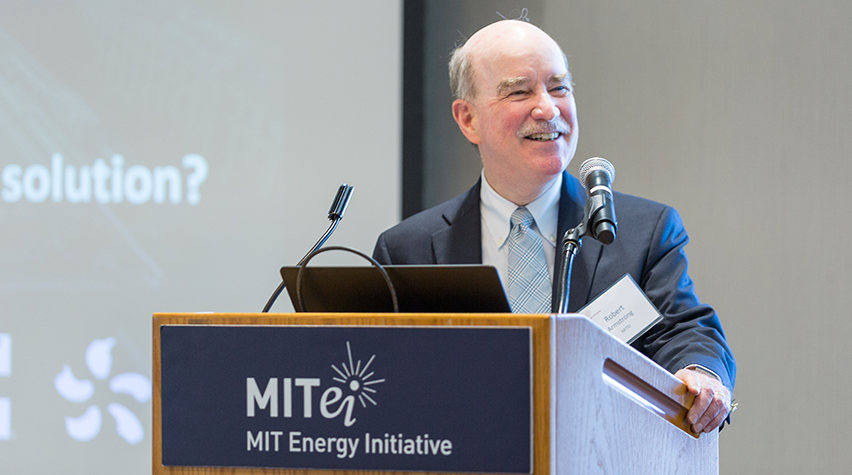
Photo credit: Justin Knight
This fall, ChEnected is introducing readers to the recipients of AIChE’s 2020 Institute and Board of Directors’ Awards, which are AIChE’s highest honors. Recipients are nominated by the chemical engineering community and voted on by the members of AIChE’s volunteer-led Awards Committee. These awards recognize outstanding achievements and world-class contributions across a spectrum of chemical engineering endeavors.
The Founders' Award for Outstanding Contributions to the Field of Chemical Engineering
The Founders Award for Outstanding Contributions to the Field of Chemical Engineering is presented to engineers who have had a profound impact on the way chemical engineering is applied, and whose achievements have advanced the profession in any of its aspects.
The recipient of the 2020 Founders’ Award is Dr. Robert C. Armstrong, the Chevron Professor of Chemical Engineering and Director of the MIT Energy Initiative at the Massachusetts Institute of Technology.
Armstrong is being honored for his landmark contributions to chemical engineering research and education, and for leadership in advancing the transition to a low-carbon future and addressing climate change.
His distinguished record of service to the profession includes key research advances in the rheology of polymeric fluids; educational initiatives that have influenced the entire chemical engineering community; academic and professional governance at MIT; and leadership in energy initiatives that have had a global impact.
“The interdisciplinary interconnections that chemical engineering enables are awe-inspiring and deeply rewarding, and I look forward to seeing how this field continues to develop.
About this year's winner
Professor Armstrong directs the MIT Energy Initiative (MITEI), an Institute-wide initiative at MIT linking science, technology, and policy to transform the world’s energy systems. A member of the MIT faculty since 1973, Armstrong served as head of the Chemical Engineering Department from 1996 to 2007. His research interests include polymer fluid mechanics, rheology of complex materials, and energy.
Armstrong was elected to the American Academy of Arts and Sciences and the National Academy of Engineering. He received the Bingham Medal from the Society of Rheology, which is devoted to the study of the science of deformation and flow of matter. He is also a recipient of AIChE’s Warren K. Lewis Award for Chemical Engineering Education and the Professional Progress Award.
Armstrong was a member of MIT’s Future of Natural Gas and Future of Solar Energy study groups. He advised the teams that developed MITEI’s most recent reports, The Future of Nuclear Energy in a Carbon Constrained World (2018), and Insights into Future Mobility (2019), and is co-chairing the new MITEI study The Future of Storage. He co-edited Game Changers: Energy on the Move with former U.S. Secretary of State George P. Shultz.
Armstrong reflects on his work
Recently, Dr. Armstrong reflected on the world-changing possibilities contained in chemical engineering:
 Photo credit: Kelley Travers
Photo credit: Kelley Travers
My career in chemical engineering has been guided by an overriding desire to help people —from inspiring students to pursue STEM careers through innovative curriculum development, to discovering how this field can coordinate with other disciplines to enable many diverse applications — as well as appreciating the opportunity and responsibility to apply chemical engineering and complementary disciplines to address major societal challenges.
Chemical engineering plays a central role in reaching our global energy and climate goals, and with this pursuit in mind, led me to my current focus as director of the MIT Energy Initiative (MITEI). At MITEI, I have the opportunity and privilege to work with faculty, students, and researchers from across MIT, as well as with other universities, professional societies such as AIChE, and industry and policymakers around the world to help mitigate climate change and provide future generations with a cleaner, better world. The interdisciplinary interconnections that chemical engineering enables are awe-inspiring and deeply rewarding, and I look forward to seeing how this field continues to develop and reveal new opportunities for connection and progress toward a clean energy future and a better world.
Meet the entire class of 2020 Institute and Board of Directors’ Award recipients in the complete ChEnected series.


